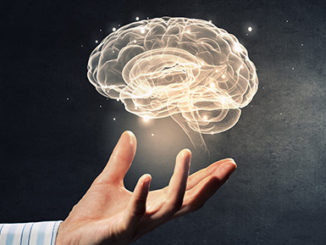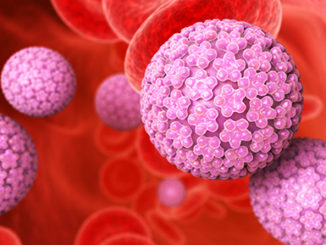Articles that explore the connection between epigenetics and diseases and disorders, including cancer, cardiovascular disease, diabetes, autoimmune disease, and more.
It’s hard not to know someone who has been affected by breast cancer. Nearly one in eight women will battle this disease in her lifetime and for those women affected it becomes the battle for their life. Early detection and medical advances stem the tide of this disease, but each study brings us a little closer to unlocking ways to combat it. While women (and men) with a family history are at higher risk for developing breast cancer, a recent [more…]
October is officially recognized as Breast Cancer Awareness month, which is dedicated to raising awareness and funding to improve medical research towards curing and preventing this disease that affects so many. According to the National Breast Cancer Foundation, it is estimated that 1 in every 8 women in the US will be diagnosed with breast cancer at some point in their lives. This disease impacts nearly every person in the US, and all over the world in some way. Although [more…]
The formation of memories has been a popular research topic among the science community. They occur by a familiar stimulus reactivating a specific group of neurons, but not much else is known about the exact logistics involved in how a memory is created and retained. Many memory-related disorders like Alzheimer’s and PTSD directly affect a person’s brain chemistry and are undoubtedly detrimental to their character and mental health. In a recent study published in the Journal of Neuroscience, researchers from the [more…]
Heart disease is one of the most prevalent ailments among Americans, and can often be deadly. According to the CDC, about 1 in 4 deaths is directly related to heart disease, and it is the leading cause of death among both men and women in the US. Risk factors that contribute to the development of heart disease include poor diet, lack of exercise, high blood pressure, and smoking. Coronary artery disease is the leading type of heart disease and is [more…]
There are many different diets available in the nutritional world today that could dramatically adjust our gut bacteria, depending on what we consume. High-fat, low-carb diets, low-fat, high-carb diets, fasting, and cleanses are just a few examples of popular diets, and even what some may call “fads”, which might leave a person confused (and hungry). Maintaining dietary health is one of the most important factors in ensuring a long, prosperous life. Often times we forget to prioritize healthy eating habits [more…]
Many people believe that breastfeeding is the best gift a mother can offer to her child. It has lots of benefits, not only because breast milk contains the right amount of nutrients, but also because it’s packed with lots of antibodies and biologically active compounds that play a key role in boosting a baby’s immune system. We have already seen how maternal nutrition and lifestyle can shape the development and future health of a baby via epigenetic mechanisms. Among many [more…]
It is estimated that 1 in 59 children in the United States fall somewhere on the autism spectrum. Autism spectrum disorder (ASD) is a developmental disorder that affects the nervous system and is characterized by challenges with speech, social skills and communication. Many factors can determine a child’s predisposition to developing autism, such as genetic mutations during brain development, chemical imbalance, and certain genetic disorders like tuberous sclerosis and fragile X syndrome. Autism has been an incredibly difficult disease to [more…]
HIV is a chronic viral infection that attacks the immune system, eventually incapacitating its ability to fight infection leaving the person vulnerable to the development of AIDS, which often leads to death. Anti-retroviral therapies can help to control the virus, but complete eradication of the virus has been tricky to achieve due its stealthy ability to hide from the immune system. HIV is unable to reproduce itself, so it relies on hijacking cellular machinery in order to ensure its survival. [more…]
DNA is the blueprint from which most living organisms are built. It makes up the genes that carry the distinctive characteristics and information that determine physical appearance and health, and it makes everybody unique. At the beginning of life, human embryos inherit genes from both their mother and father, and although the actual genes cannot be altered, the way they are expressed can be influenced by epigenetics. Parents can have a huge epigenetic influence on the development of an embryo [more…]
Viruses can cause many different health problems in humans including HIV/AIDS, hepatitis, herpes, and even cancer. They are an extremely small foreign organism that invade healthy cells, and seek to wreak havoc in a healthy human or animal. Viruses are comprised of either RNA or DNA covered in a protein shell, and cannot reproduce on their own, so they rely on their host to survive. Once a virus is inside the body, it hijacks the machinery of healthy cells by [more…]











